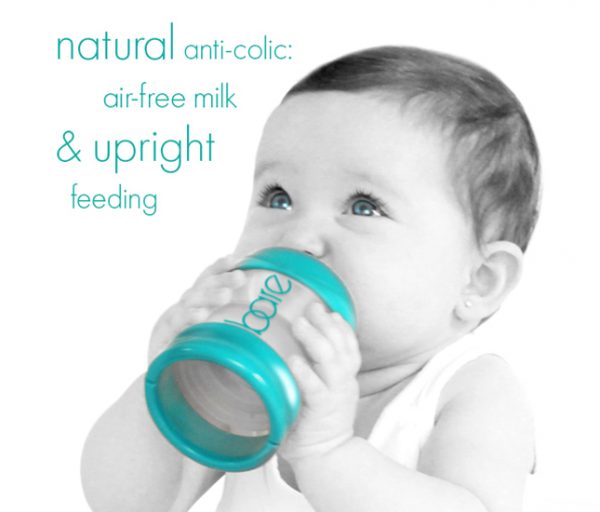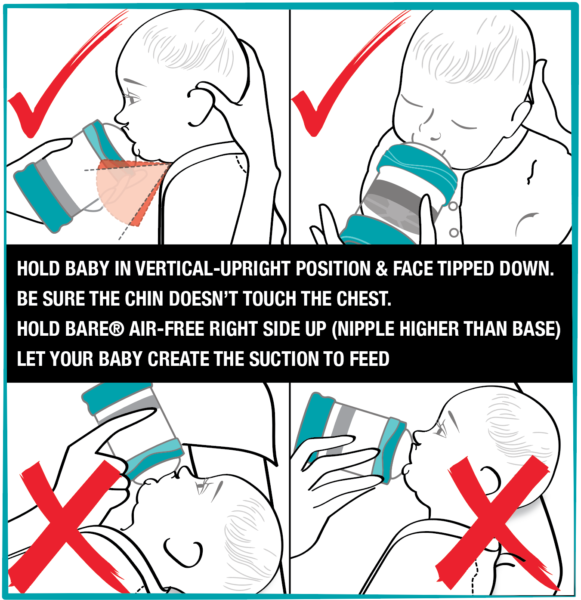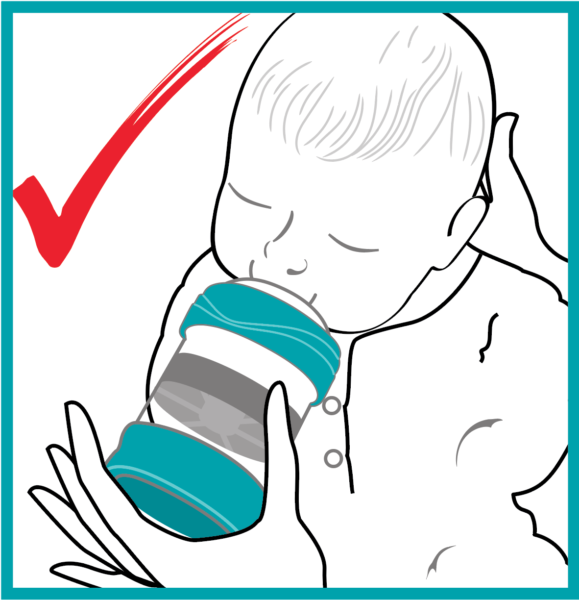
Bare® Air-free feeds while baby is in a vertical-upright position
Pediatricians recommend the upright feeding position to:
- Help prevent gas, colic, fuss & spit-ups
- Calm acid reflux/GER symptoms
- Help prevent ear infections
- Encourage proper feeding posture
- Promote self-feeding
- Improve transition to cups
Why feeding in an upright position is better.
“A baby with reflux has fewer symptoms if they are held upright.” “Placing an infant in a semi-inclined position does not make the condition better. In fact, it may worsen GER; therefore, you should avoid it.” Says Jenifer R. Lightdale MD, MPH, AGAF, FAAP. She is chair of the AAP Section on Gastroenterology, Hepatology, and Nutrition Executive Committee.
Statistics show that 2 out of 3 babies suffer from acid reflux symptoms. Most of these babies use traditional vented or bag-bottles to feed. The same observation occurred when the content was the mother’s breastmilk. A clinical study shows that feeding with Bare®Air-free resulted in a vast improvement in all 100% of babies.
Bare® Air-free feeds with suction as opposed to gravity. Therefore, babies can sit in a vertical-upright position, with their face tipped down, and feed comfortably. Additionally, babies feeding against gravity can control the flow and pace with suction as they naturally do when breastfeeding.

Guidelines and recommendations

Bare® Air-free feeding system complies with the recommended upright feeding guidelines, so babies feed comfortably while minimizing regurgitation.
Every year, leading Pediatric Institutions such as The American Academy of Pediatrics (AAP), National Institutes of Health (NIH), and North American Society for Pediatric Gastroenterology, Hepatology, and Nutrition (NASPGHAN) publish the guidelines so Pediatricians around the world can follow them.
Typical treatments for symptomatic babies include prescription drugs, thickened formula, and lifestyle changes. As the guidelines evolve with new information, it is common that what was acceptable before may no longer be. Numerous studies show permanent damage and little benefit from the use of prescription drugs to treat GER. Other studies show a direct correlation between thickened formula and health-threatening side effects.
Therefore, the latest guidelines no longer recommend prescription drugs or the use of thickened formula for premature babies and full-term babies under two months.
